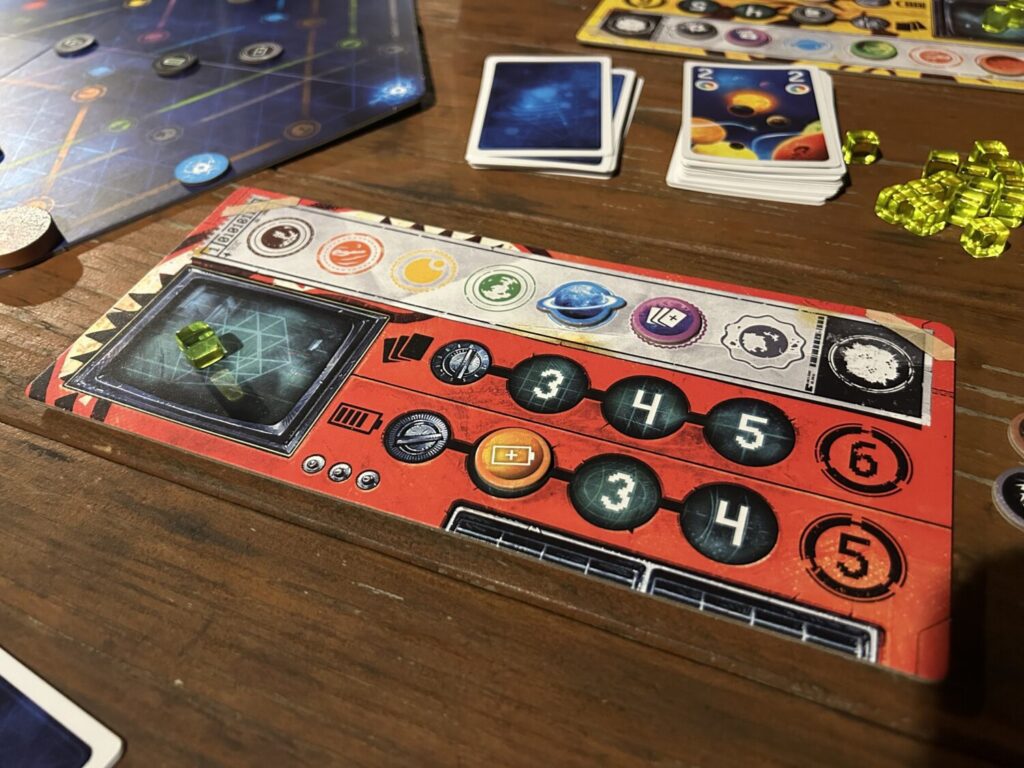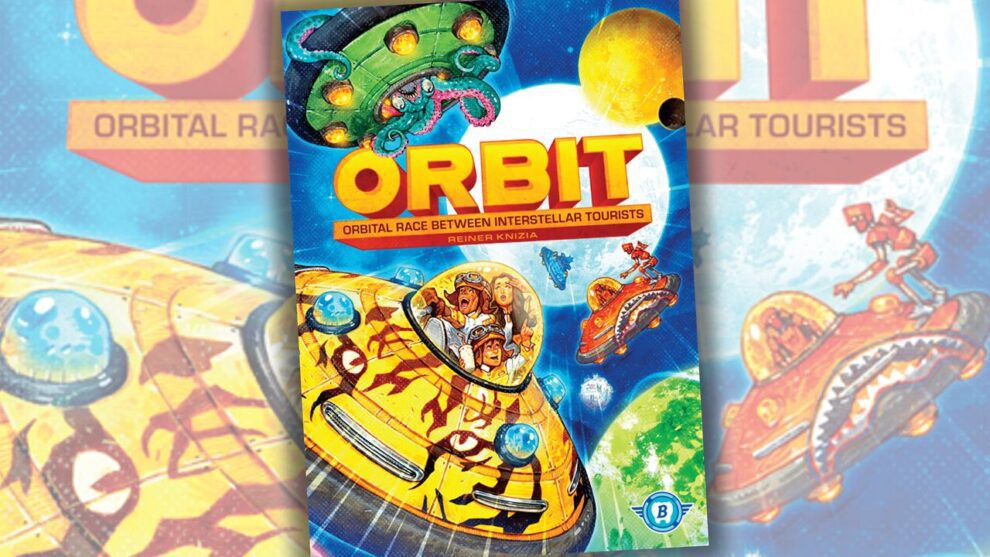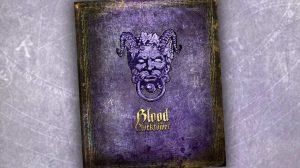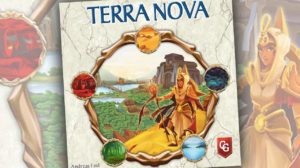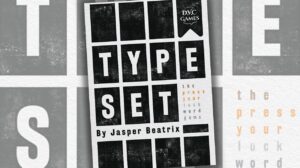Disclosure: Meeple Mountain received a free copy of this product in exchange for an honest, unbiased review. This review is not intended to be an endorsement.
I don’t tend to do much in the way of planning before a trip. I never have. The first time I went to Paris, I woke up early, walked out the front door of the hostel, pointed myself towards the Eiffel Tower, and spent the rest of the day blowing in the breeze. My approach to travel is more tactical than strategic, a semi-haphazard collection of impulses and conveniences. I often have a list of vague interests to investigate, but rarely is there anything approaching an itinerary.
Reiner Knizia’s ORBIT is about a group of interstellar tourists trying to visit every planet in the solar system. It’s a race, with the first player to collect every stamp in their passport declared the winner. Players take turns putting down a card in order to move their ship, collect some energy cubes that can be used for extra movement during your turn, and advance one or more of the planets on the board along their orbit.
Given your exacting and unyielding list of Things to Do, the concept of ORBIT represents the opposite of my approach to travel. We will see the Eiffel Tower. We will visit Victor Hugo’s apartment. If we do not see each and every wing of the Louvre, we cannot win.
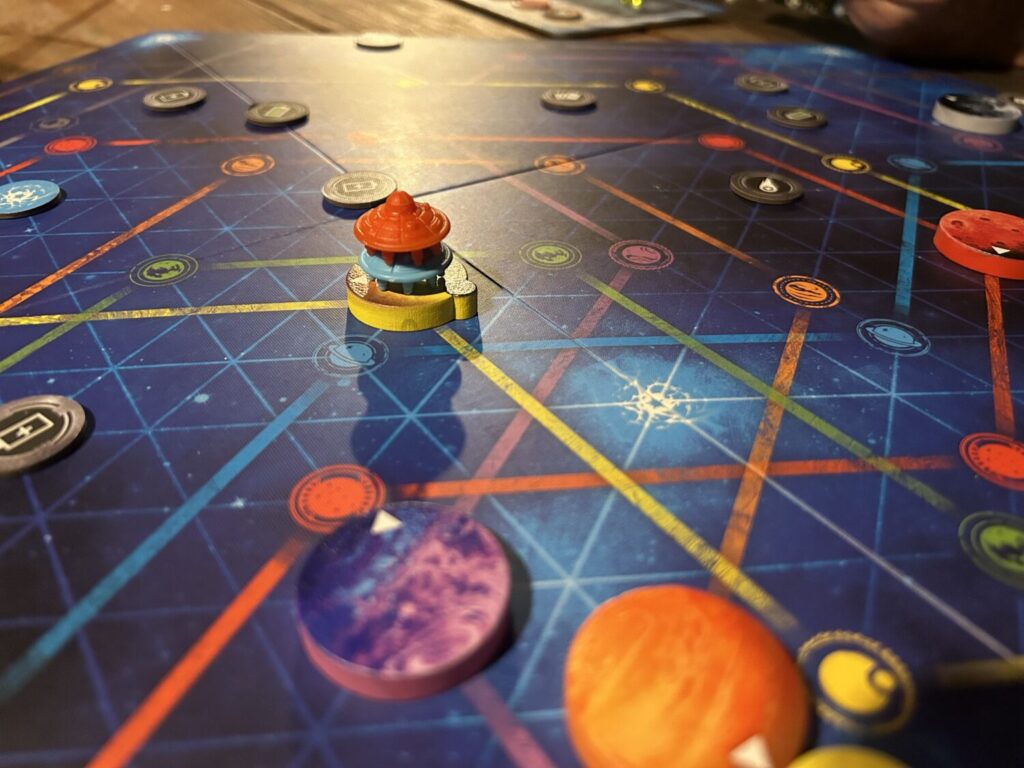
The gameplay, on the other hand, seems to perfectly encapsulate my ethos. Between the small hand size and the ever-changing nature of the board, what with those planets flying all over the place, you can only think so far ahead. In theory, this could lead to an entertaining and undulating decision space, but the reality is that, for the most part, ORBIT falls flat. The game doesn’t allow for the mixture of short-term tacts and somewhat bigger-picture planning that defines many of Knizia’s standout big box games, like The Quest for El Dorado or Through the Desert. It also doesn’t let you reliably get in one another’s ways. Occasionally, you may find your plans stymied or have the opportunity to stymie someone else, but that doesn’t happen often.
Just as well. ORBIT is a game in which it’s exceedingly rare that you can impede someone else while also advancing your own cause, which means that a more obstructionist approach leads to a game that grinds and drags. The quality of decisions and interaction in ORBIT makes this a game that doesn’t want to last more than 30 minutes, but it easily takes 45, and often more than that if everyone involved is trying to ruin the carefully laid plans of other players.
You have the ability to upgrade your ship over the course of the game, and there’s some fun to be had with the wormholes that populate the board, but there’s not enough here—outside of its good production and excellent Vincent Dutrait artwork—to make ORBIT stand out. The expansion certainly makes for a more interesting game, with the ability to reverse the direction of orbit for the planets, but it still doesn’t transcend its limitations. ORBIT is a tourist destination worth seeing if you happen to walk by it, but it’s not worth going out of your way to visit.
